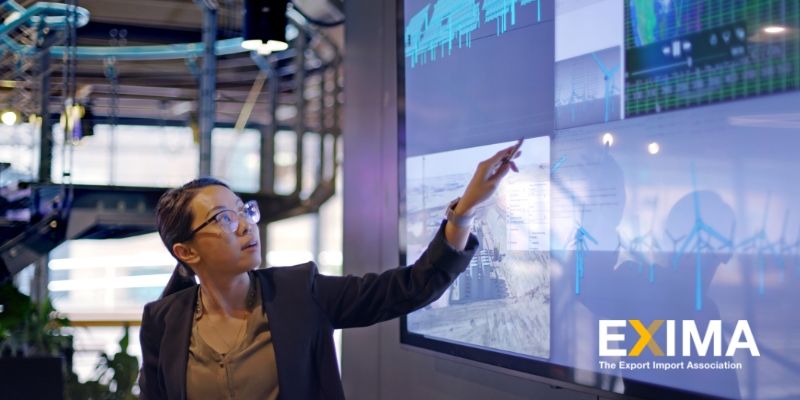The EU-Mexico Economic Partnership, Political Coordination, and Cooperation Agreement (commonly known as the "Global Agreement") governs trade relations between the two countries. In the 20 years since the Global Agreement went into effect, bilateral trade had increased more than three times by 2020.
In 2016, the EU and Mexico decided to comprehensively and ambitiously modernize the EU-Mexico Global Agreement. On the trade portion of the updated EU-Mexico Global Agreement, the two parties came to an "agreement in principle" in April 2018. In April 2020, they completed the last technical aspects of public procurement. Both sides are completing the essential internal processes for the EU-Mexico Agreement, which will result in its signing and completion.
Modernizing the EU-Mexico Global Agreement
Mexico signed the Economic Partnership, Political Coordination and Cooperation Agreement (Global Agreement) with the EU for the first time in Latin America in 1997.
This pact, which governs collaboration, trade contacts, and political discussion, entered into force in 2000. Later, the trade provisions of the Global Agreement evolved into a thorough Free Trade Agreement that included both commerce in products and trade in services. These clauses took effect in October of 2000 and 2001, respectively.
The 2013 summit between the EU and the Community of Latin American and Caribbean States decided to examine the possibilities for a thorough overhaul of the Global Agreement.
In May 2016, talks with Mexico were launched. In April 2018, the two parties established an in-principle agreement on the trade portion. In April 2020, promises on public procurement were added.
The new deal with Mexico's social, environmental, and economic implications was examined as part of a Sustainability Impact Assessment (SIA) that the European Commission commissioned from a third-party consultancy. This Position Paper contains the Commission's response to the conclusions and suggestions of the SIA. Once ratified, the Agreement will replace the current Global Agreement between the EU and Mexico. This modernization, which includes definite and robust commitments to human rights, sustainable development, and the fight against corruption, will bring the framework for trade and investment into the twenty-first century based on reciprocity and foster new economic prospects.

What was negotiated – details on the modernized Agreement
The 1997 agreement between the EU and Mexico contained few provisions on trade in goods that are now standard and did not cover several farming and fisheries products. There will be no customs duties on 98% of goods from the moment the Agreement comes into force. Customs duties will be removed over time or for a limited amount, defined as a quota for the remaining goods.
- In particular, the Agreement will:
Provide preferential access for fresh and processed cheeses of a 0% tariff quota of 5,000 tonnes (currently taxed up to 45%) and for mature cheeses of a 0% tariff quota of 20,000 tonnes (currently taxed up to 45%); - Secure a considerable volume of milk powder, which Ireland is a prominent exporter of, starting with a 0% tariff quota of 30,000 tonnes from entry into force, rising to 50,000 tonnes after five years (currently taxed up to 50%)
- Allow Ireland to increase its pork and poultry exports to Mexico, with duty-free trade for virtually all pork products (currently taxed up to 45%) and economically relevant poultry products (currently taxed up to 100%).
The Agreement includes provisions for customs and trade facilitation that are meant to shorten border processing times and improve the speed, predictability, and effectiveness of the movement of products.
This includes streamlining customs processes, establishing shared values, facilitating better information sharing and cooperation between EU and Mexican customs authorities, and enacting stringent transparency rules to guarantee that businesspeople and the general public have access to information on laws, decisions, and administrative policies.
According to the Agreement, Mexico will also accept product certification for commercial goods produced in the EU. As a result, it will be simpler for EU businesses to demonstrate that they have adhered to Mexican norms and laws. Just as they do now, Mexican exporters will still need to adhere to the high standards and regulations of the EU.
While upholding strict health and cleanliness standards for food goods, the Agreement will quicken trading. The precautionary principle guides the parties' decision-making and is also expressly mentioned in the Agreement. This indicates that the EU may continue to ban products from its market if there is no scientific certainty of their safety, as stated in the EU treaties.
The EU exports some €10bn of services to Mexico each year. The Agreement will make it easier for the EU to access Mexico's fast-growing services market while reaffirming the EU and Mexico's right to regulate.
Under the Agreement, Mexico will open its public procurement market to Irish and EU companies more than any other trading partner. Mexico has also committed itself to enter negotiations with the Mexican States to allow EU firms to tender for contracts at the State level by the time the Agreement is signed.
The Agreement contains a dedicated chapter for SMEs that requires the EU and Mexico to provide a website to avail of the benefits of and provide reliable information to SMEs on the Agreement.
The EU and Mexico have agreed upon a framework for sustainable development that establishes guidelines for both labor and the environment. All governments have pledged in the Agreement to prevent any easing of work or environmental regulations from advancing trade or drawing in investment.
The International Labour Organization's conventions and multilateral environmental agreements, the Agreement includes legally binding promises to preserve workers' rights and the environment. The struggle against climate change and the shift to a sustainable low-carbon economy are supported by the Paris Agreement on Climate Change. The Agreement contains pledges for the sustainable management of fisheries and forests.
Learn More with EXIMA News
EXIMA News is here to provide you with all the latest updates on global news. Take a look at our News Page to learn more about current events!









